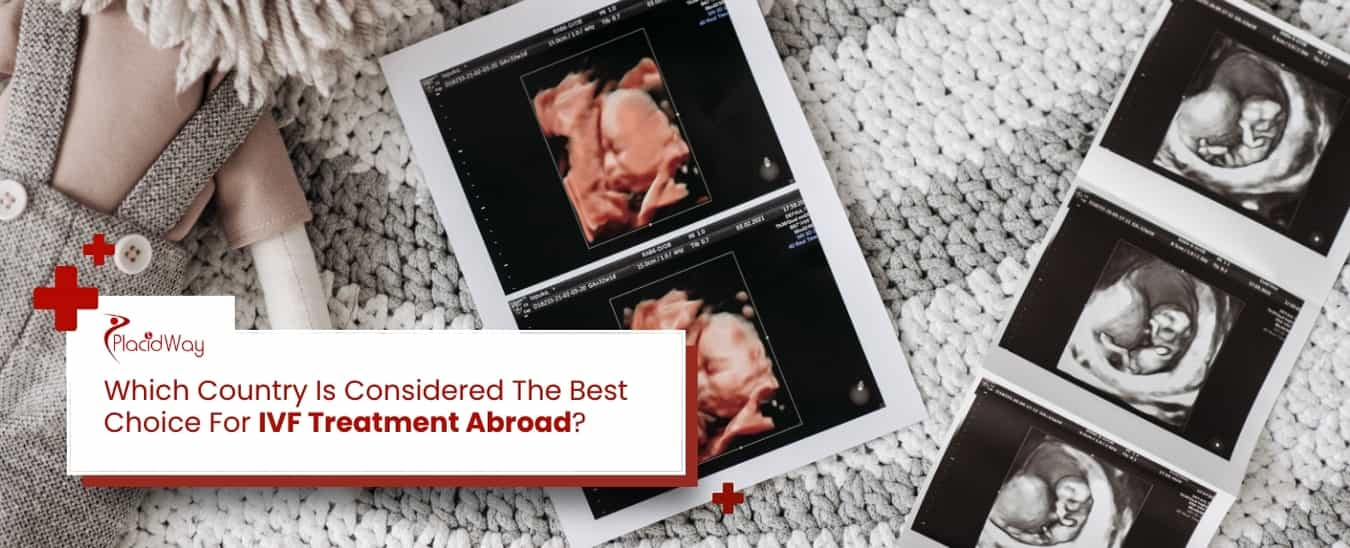Why Consider IVF Treatment Abroad?

When people consider fertility treatment overseas, they are often looking for a combination of high-quality medical care, more favorable pricing, access to specific treatments not available locally, or shorter waiting lists.
Countries like Spain, the Czech Republic, Greece, and Cyprus have emerged as front-runners, drawing patients globally due to their established expertise in reproductive medicine, competitive pricing, and generally high success rates. These destinations offer a ray of hope for those navigating the complexities of infertility solutions.
What are the top countries for IVF treatment abroad?
These destinations have cultivated strong reputations in reproductive medicine, attracting patients from around the globe seeking high-quality and often more affordable fertility treatment overseas.
-
Spain: Renowned for its stringent regulations, excellent success rates, and advanced reproductive technologies, Spain is a leading choice. Clinics here often offer cutting-edge techniques like PGT (Preimplantation Genetic Testing) and have extensive experience with egg donation IVF, boasting minimal to no waiting lists for donors. The country's legal framework is also progressive, accommodating various patient profiles.
-
Czech Republic: This country stands out for its affordability without compromising on quality. The Czech Republic offers competitive pricing for IVF cycles and maintains good success rates. Its laws mandate strict anonymity for egg and sperm donors, which can be a key factor for some patients. The regulatory environment is robust, ensuring high standards of care.
- Greece: Greece has become increasingly popular due to its relaxed legal framework, allowing for treatments for single women and same-sex couples, and offering a higher age limit for women undergoing IVF. It provides a balance of competitive pricing, good success rates, and is particularly popular for egg donation programs. The warm climate and welcoming culture also add to its appeal for medical tourists.
- Cyprus (North and South): Both sides of Cyprus offer attractive options for IVF treatment abroad. They combine affordability with access to modern technology and experienced specialists. Cyprus is often chosen for its flexible laws regarding egg and sperm donation, and its ability to offer a comprehensive range of fertility solutions.
How much does IVF treatment abroad cost?
A standard IVF cycle using your own eggs in countries like the Czech Republic, Greece, or Spain can range from approximately €2,500 to €8,000. This often includes consultations, monitoring, egg retrieval, fertilization, and embryo transfer. However, specific procedures can add to this base price:
- Egg Donation IVF: If you require egg donation, the costs are higher, typically ranging from €5,000 to €12,000, as it includes donor compensation, screening, and additional medical procedures.
- Preimplantation Genetic Testing (PGT): Adding PGT for embryo screening can increase the total cost by €1,500 to €4,000, depending on the number of embryos tested.
- Medications: Fertility medications are a significant expense and are sometimes not included in the base package price. They can add €800 to €2,000 or more per cycle.
- Additional Services: Services like embryo freezing, sperm freezing, or extended embryo culture can incur extra fees.
Ready to explore your options for IVF treatment abroad? Visit PlacidWay to connect with leading clinics and plan your journey to parenthood.


.png)
.png)

.png)
.png)

Share this listing